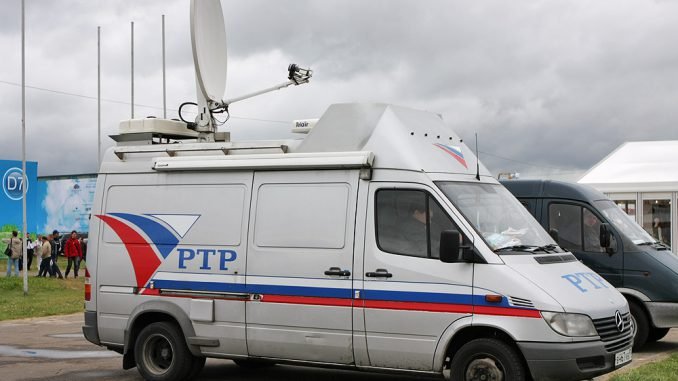
Broadcasters doubt if the ban by the Lithuanian Radio and Television Commission, or LRTK, on Sweden-registered RTR Planeta applies to other versions of the channel.
The LRTK management admit that the sanctions may be partially inoperative due to certain legal nuances.
LRTK Deputy Chairman Mantas Martišius confirmed to BNS that the majority of 48 TV service providers had informed the commission that they were broadcasting Sweden-registered RTR Planeta. Five providers had informed it that they were broadcasting the Russia-registered version, and they did not stop the broadcasts on Friday.
“Legally, the channel in the Russian Federation differs from that in Swedish. So, it possible that they did not turn it off,” Martisius said.
Lithuania’s major TV service providers confirmed to BNS that they had taken RTR Planeta off the air on Friday, as ordered by the watchdog.
The Lithuanian Cable Television Association has asked LRTK for explanation.
“We are waiting for the commission’s explanation. The question is whether we can rebroadcast another version (of RTR Planeta),” Virginijus Jurgelevičius, CEO of Balticum TV, a member of the association, told BNS.
Paulius Živatkauskas, CEO of the TV service providers Init, also said that the company was considering replacing the banned version of RTR Planeta with its Russia-registered version.
LRTK Chairman Edmundas Vaitekūnas said that in order to avoid such ambiguities, TV service providers would be required to demand that foreign broadcasters state clearly what country their channel is registered in.
The commission imposed the one-year suspension on RTR Planeta last week, saying that three instances of incitement to war and hatred in programs aired on the Russian-language channel had been registered over the past year.
The watchdog said that the restriction applied specifically to the RTR Planeta channel registered in Sweden, a EU member state.
LRTK had previously twice suspended broadcasts by RTR Planeta, in 2015 and 2016, for distributing content inciting to war and hatred.
